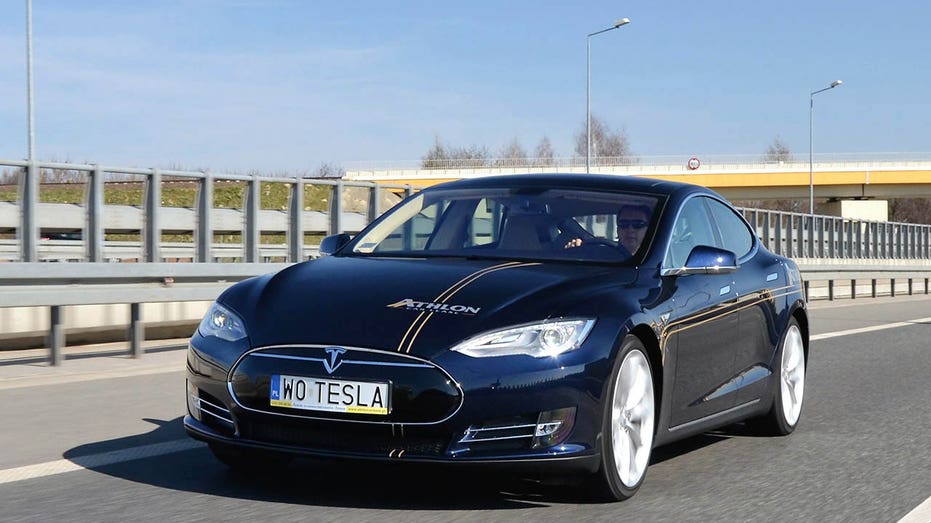Tesla Model S tricked into accelerating 50 mph by security researchers
The researchers from McAfee used a piece of tape in their 'model hacking'
Two researchers at computer security company McAfee tricked a Tesla into speeding up by 50 mph with a piece of tape.
The researchers, Steve Povolny and Shivangee Trivedi, used a technique called model hacking, which studies how bad actors can exploit artificial intelligence to expose vulnerabilities "in an industry that is evolving technology at a pace that security has not kept up with," their study notes.
| Ticker | Security | Last | Change | Change % |
|---|---|---|---|---|
| TSLA | TESLA INC. | 411.11 | +13.90 | +3.50% |
Povolny and Trivedi exposed one such AI vulnerability in Tesla's older version of its Model S car, which uses a smart camera called MobilEye that uses machine learning to detect speed-limit signs to determine how fast a car should be driving in specific areas. The model's autopilot feature called Speed Assist works with MobilEye "immediately" set the car's automated cruise control speed.
The researchers taped a small piece of black electrical tape to a 35 mph speed-limit sign to make the number "3" slightly resemble an "8." As a result, when they drove past the sign in the Model S, the car's smart MobileEye camera misread the speed limit, causing the Speed Assist feature to make the vehicle accelerate well over 35 mph to 85 mph.
TESLA CYBERTRUCK PRE-ORDERS TOP $535K, UNOFFICIAL TALLY SAYS
"Even to a trained eye, this hardly looks suspicious or malicious, and many who saw it didn’t realize the sign had been altered at all. This tiny piece of sticker was all it took to make the MobilEye camera’s top prediction for the sign to be 85 mph," Povolny and Trivedi wrote.
The researchers said newer versions of the Model S do not use MobilEye or speed-limit sign sensors. They also note that their test was "highly academic" by adversary standards but added that their finding still "represents some of the most important work we as an industry can focus on to get ahead of the [AI vulnurability] problem."
Tesla did not immediately respond to FOX Business' request for comment.
EU EYES AI REGULATION. HERE'S WHAT IT COULD MEAN
Tesla and MobileEye expressed "interest" in McAfee's research "and were grateful for the research but have not expressed any current plans to address the issue on the existing platform. MobileEye did indicate that the more recent version(s) of the camera system address these use cases," the study says.

Electric zero-emission Tesla S driving on the street in Grodzisk, Poland. / iStock
A California law firm that specializes in defective products sued Tesla in January on behalf of eight Tesla owners who say their various Telsa models, including the Model S, Model X and Model 3, have experienced sudden uncommanded acceleration (SUA), according to a press release.
GET FOX BUSINESS ON THE GO BY CLICKING HERE
The lawsuit came after the National Highway Traffic Safety Administration (NHTSA) on Jan. 13 opened its review of a petition, which cites 127 consumer complaints and 123 individual vehicles, calling for an investigation into 500,000 Tesla vehicles with potential unintended acceleration issues.
Tesla encourages drivers to keep their hands on the wheels of their vehicles while using autopilot.
The electric vehicle leader responded to news of the NHTSA petition review in a statement saying the company investigates "every single incident where the driver alleges to us that their vehicle accelerated contrary to their input, and in every case where we had the vehicle's data, we confirmed that the car operated as designed. In other words, the car accelerates if, and only if, the driver told it to do so, and it slows or stops when the driver applies the brake."
CLICK HERE TO READ MORE ON FOX BUSINESS




















